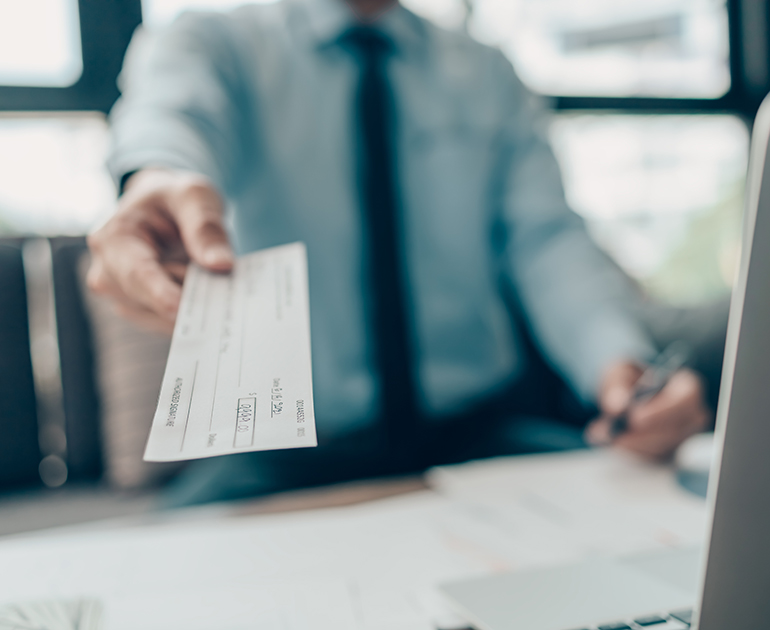In today's digital age, it's more important than ever to be vigilant against various forms of financial fraud. One persistent threat is check fraud, which can unfortunately affect anyone. To help you protect yourself, we've put together a list of common red flags to watch out for.
- Overpayments and Requests for Refunds: This is a classic scam. A fraudster might send you a check for an amount significantly higher than what you agreed upon, then ask you to refund the "overpayment" via wire transfer, gift cards, or another method. Even if the check appears to clear your account initially, it can later be identified as fraudulent, and you'll be responsible for the entire amount, including the "refund" you sent.
- NEVER accept a check payment that includes an overpayment.
- NEVER return funds to someone who has overpaid you with a check, especially if they are pressuring you to do so quickly.
- Unsolicited Checks: Be extremely wary of checks you receive unexpectedly, especially from unknown individuals or companies. These are likely part of a scam to trick you into depositing a fake check.
- Poorly Printed or Suspicious-Looking Checks:
- Misspellings or grammatical errors on the check itself.
- Incorrect routing or account numbers.
- Flimsy paper or unusual font.
- Missing security features like watermarks or microprinting (though these can be difficult to verify without specialized equipment).
- Pressure to Act Quickly: Fraudsters often try to rush you into making a decision or taking action, hoping you won't have time to verify the check's legitimacy. Be suspicious of anyone urging you to deposit a check and send money immediately.
- Vague or Unbelievable Stories: If the reason for receiving the check seems odd, too good to be true, or doesn't make sense, it's likely a scam. This could include lottery winnings you didn't enter, inheritances from unknown relatives, or payments for jobs you didn't apply for.
- Requests for Personal Information: Be cautious if someone sending you a check also asks for sensitive personal or financial information beyond what is typically required for a transaction.
- Checks from Unknown Banks or Out-of-State Banks (especially for local transactions): While not always a red flag on its own, it can be a warning sign, particularly if combined with other suspicious behaviors.
What to do if you suspect check fraud:
- Do NOT deposit the check.
- Do NOT send any money back to the sender.
- Contact your bank immediately to report the suspicious check.
- Report it to the appropriate authorities, such as the Federal Trade Commission (FTC) or your local police department.
Your financial security is important to us. By being aware of these red flags, you can significantly reduce your risk of falling victim to check fraud.

